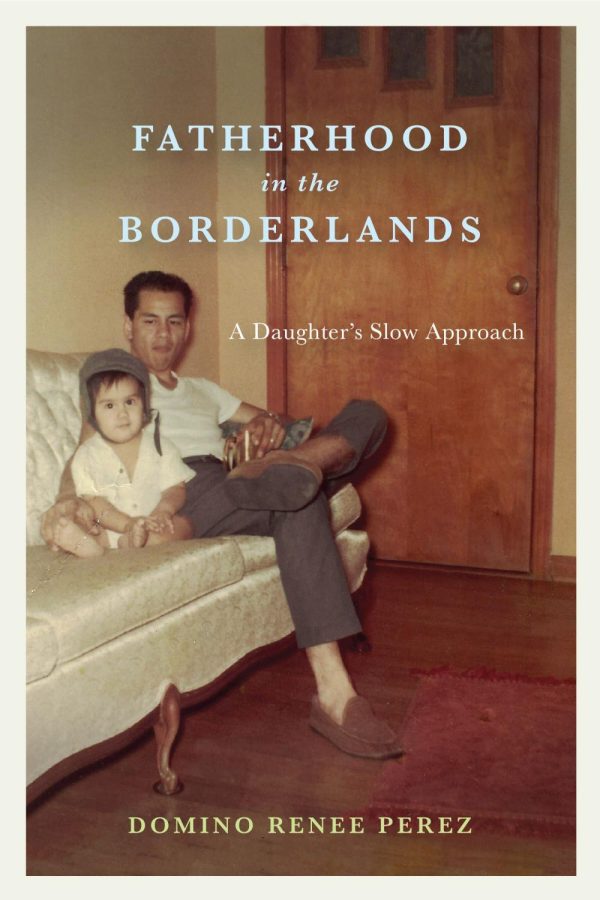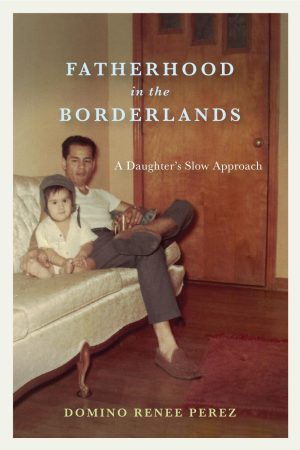UT professor’s book tackles inequity in Texas, confronts misrepresentation
February 6, 2023
Domino Perez spent most of her childhood in Houston engulfed in literature and film. During countless trips to the library, Perez began to express her own life on paper.
Years later, Perez, a UT associate professor in English and Mexican American Studies and senior associate chair of the department of English, continues her love for storytelling. Her newest book, “Fatherhood in the Borderlands: A Daughter’s Slow Approach,” examines race, class, gender and the portrayal of Mexican American fathers in literature and film.
Centered on her upbringing in Houston, Perez said her community greatly influenced the memoir.
“I didn’t see people who looked like my family represented anywhere in literature or film,” Perez said. “I didn’t see Mexican American families represented with any kind of diversity or nuance.”
While Perez did not see many Mexican American fathers in the borderlands represented in movies, she said she bonded with her father over film growing up.
“I knew if I was going to write a book about an absence, I was also going to have to fill that absence with a presence,” Perez said. “I was going to have to write my father into (the story). I no longer talk to my father … but I still can’t ignore the influence he had on my critical thinking and how I think about film.”
Perez said the book took her 10 years to write, with the bulk of it written during the COVID-19 pandemic. Amidst a confusing time, Perez said working on the book grounded her.
“Through a series of events that were beyond my control, suddenly, I had a focus that I never had before,” Perez said. “That propelled this project forward after not being able to write it for 10 years. I wrote the book in seven months.”
Charlotte Canning, a UT theater and dance professor, became Perez’s writing buddy during the pandemic. Canning said “Fatherhood in the Borderlands” broadens the perspective of Texans’ lives beyond the white man.
“(It) disrupts the way we think about standard Texas histories … in ways that complicate and add nuance and detail,” Canning said. “It was an honor to be part of that process.”
James Cox, Perez’s husband and fellow UT English professor, said his unique position allowed him to see her entire journey. With an excerpt of Perez’s book featured in her hometown paper, The Houston Chronicle, Cox said recognition for Perez’s years of work created a special moment for everyone involved in the story.
“To see her experience, having part of her story appear in her hometown newspaper, of course was really exciting and satisfying for her but was equally exciting for her family,” Cox said.
Creating representation for herself and other Mexican Americans in the borderlands, Perez said she wants to continue to tell stories reflective of her upbringing in Houston, as well as confront misrepresentation in the media.
“Sometimes when we are looking for something and we can’t find it, we have to be the ones to make (it),” Perez said. “I found very limited representations of me and my familial experiences. What I did find, I felt it was important to talk about, and what I didn’t find, I felt it was important to write into existence.”












